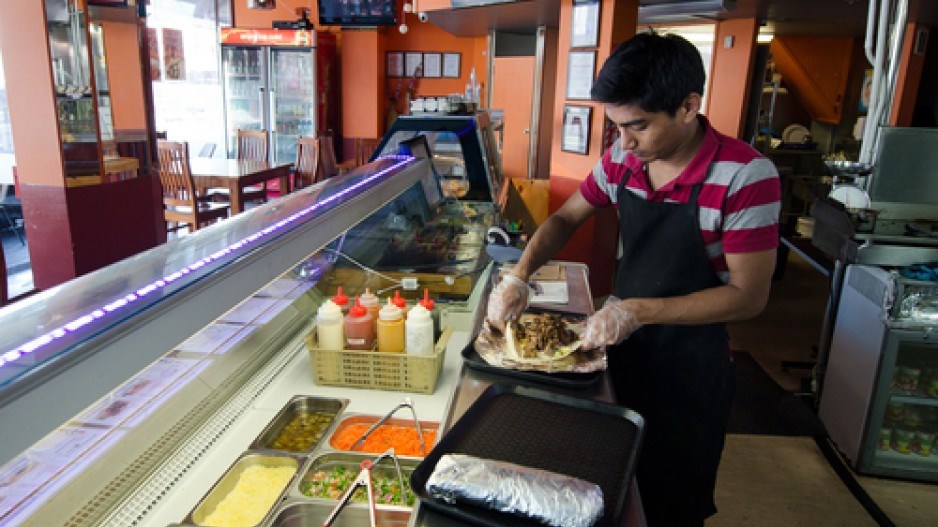Jobs Minister Shirley Bond plans to unveil a new system for setting B.C.’s minimum wage, but has no intention of raising it to $15 an hour from $10.25 any time soon.
Bond said most other jurisdictions already have a predictable way of managing the minimum wage, by tying it to the Consumer Price Index, average wage earnings or other markers.
Bond said her ministry is looking at all possibilities.
“Of course, businesses are concerned about any significant and ad hoc approach to this,” she said. “So they, too, are urging us to look at whether there’s a systematic way to do that.”
Bond said she’s working through the final policy changes with her colleagues and expects to make an announcement this year.
“I’m not going to wait much longer, obviously,” she said. “I think there are issues around timing. I want to be sure that if we do contemplate some of those changes that it works for business.”
Bond also said she respects the views of the B.C. Federation of Labour, whose members visited MLAs at the legislature Tuesday to press for a $15-an-hour minimum.
Federation president Irene Lanzinger said someone earning minimum wage in B.C. lives more than $6,000 below the poverty line.
“That is simply shameful in a province as rich as ours,” she said. “There is no excuse for a minimum wage that entrenches poverty.”
Lanzinger said it’s a myth that everyone earning minimum wage is a teenager working a first job for pocket money.
She said nearly half the minimum-wage workers are older than 25 and 63 per cent are women.
The federation said 46 per cent of minimum-wage earners toil for employers with more than 500 workers.
“We say raising the minimum wage is good for the economy,” Lanzinger said. “When the minimum wage goes from $10.25 to $15 an hour, what do you think you do with the extra $4.75 an hour? You actually spend it in the economy. You spend it in small businesses. You take your kids to a movie for a change, or you take them to the pool.
“We can afford as a province to raise those people up.”
Bond, however, said the number of people on minimum wage has fallen to 110,000, more than half of whom still live at home.
“I am not, by any means, diminishing some of those stories that we’ve heard, especially from organized labour,” she said. “We’ve taken a good, thorough look at this. Lots of discussion. But I also have been clear: We’re not going to be moving to $15 an hour any time soon.”
Premier Christy Clark raised the minimum wage shortly after she became leader. It moved from $8 an hour to $8.75 in May 2011, rose to $9.50 six months later and hit $10.25 in May 2012. The minimum hourly wage for a liquor server is $9.
Alberta increased its minimum wage to $10.20 last September. The wage for a liquor server rose to $9.20.
Alberta uses a formula that links increases to average weekly earnings and the Consumer Price Index in that province. The index measures changes in the price level of representative goods and services.
Saskatchewan, which increased its minimum wage to $10.20 last October, introduced a new mechanism for determining future increases.
The wage will be indexed using the Consumer Price Index, the average hourly wage in Saskatchewan for the previous year and a collection of goods and services that a family would typically purchase. Any changes must be announced before June 30 each year, to take effect Oct. 1.
@bizinvancouver




